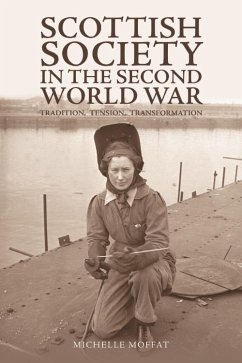
Polish Resettlement Corps 1946-1949 (eBook, ePUB)
Britain''s Polish Forces
Versandkostenfrei!
Sofort per Download lieferbar
14,95 €
inkl. MwSt.
Weitere Ausgaben:

PAYBACK Punkte
7 °P sammeln!
At the end of the Second World War, the Polish Allied Forces under British Command refused to stand down when America, the Soviet Union and Britain decided that Poland would be part of Russia's new sphere of interest in Europe. This defiant gesture became known as the 'Polish problem' and was extremely symbolic, for it threatened to embarrass Britain's entry into the War on behalf of Polish independence. To resolve the issue Britain established the Polish Resettlement Corps, under the country's first ever mass immigration legislation. The initiative was just as much a face saving exercise, as ...
At the end of the Second World War, the Polish Allied Forces under British Command refused to stand down when America, the Soviet Union and Britain decided that Poland would be part of Russia's new sphere of interest in Europe. This defiant gesture became known as the 'Polish problem' and was extremely symbolic, for it threatened to embarrass Britain's entry into the War on behalf of Polish independence. To resolve the issue Britain established the Polish Resettlement Corps, under the country's first ever mass immigration legislation. The initiative was just as much a face saving exercise, as it was a noble act of one ally on behalf of another. This book describes the methods and the legacy of the resettlement program, which not only required the support of the Trade Unions, Professional Associations and the Departments of Employment, Health and Pensions amongst others, but also the lobbying of the Vatican City, the governments of Argentina, Brazil and southern Africa, as well as the Commonwealth countries. Britain's solution to the Polish problem eventually became a heroic, as well as a tragic act; often referred to but rarely explained. The book contains three sections and comprises 33 chapters which are fully referenced. Numerous images and photographs are included to illustrate this history.
Dieser Download kann aus rechtlichen Gründen nur mit Rechnungsadresse in A, B, BG, CY, CZ, D, DK, EW, E, FIN, F, GR, HR, H, IRL, I, LT, L, LR, M, NL, PL, P, R, S, SLO, SK ausgeliefert werden.













